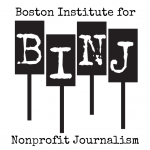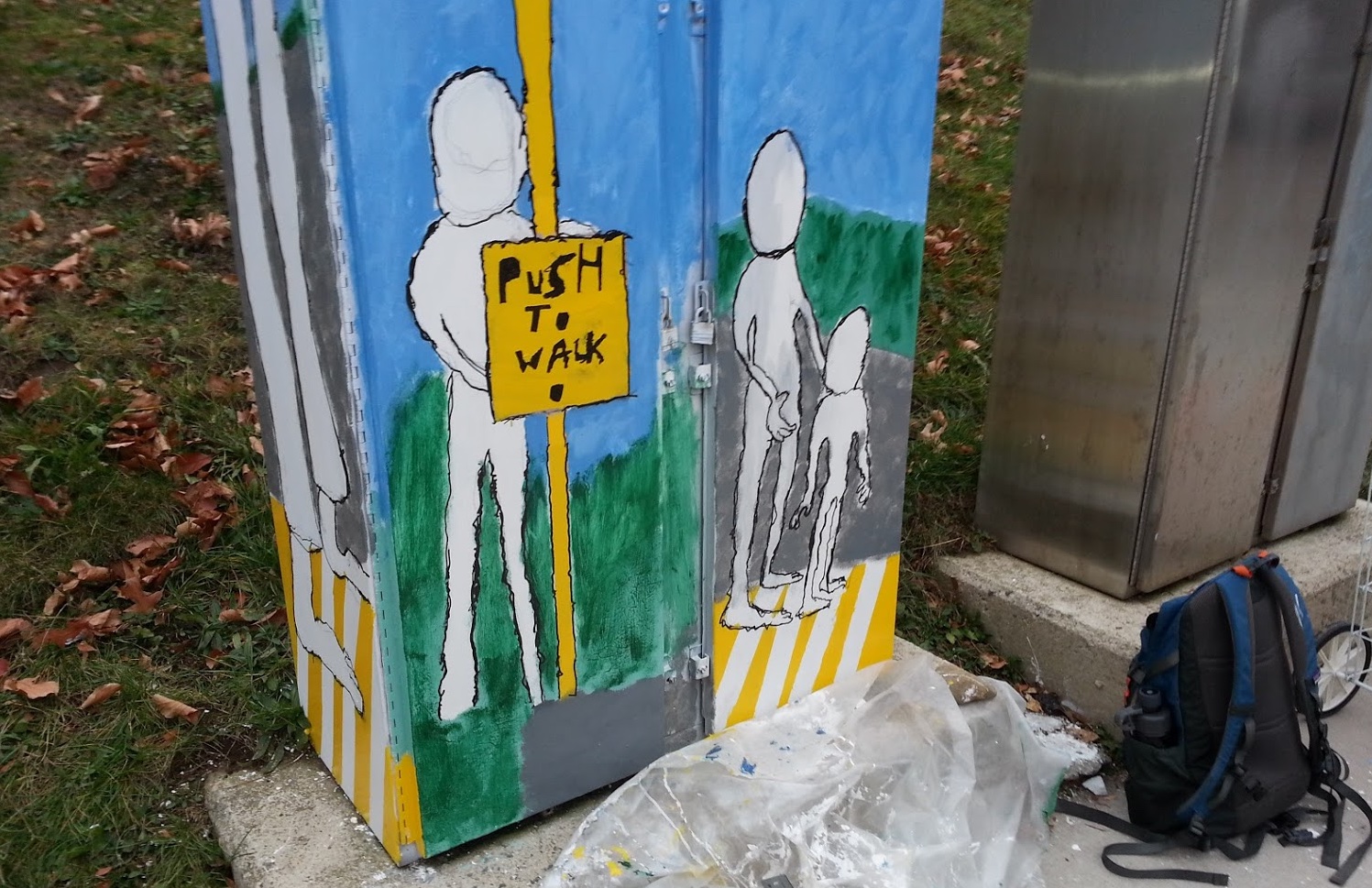Paintings, drawings, and illustrations that tell a story
(Somerville Wire) – Christina Tedesco is a Somerville artist whose work deals with “balance and imbalance, control and the lack thereof.” She has been drawn to explore the human body, in interest that grew out of her experience with cerebral palsy, a physical disability. Here, I asked Tedesco to share her inspirations, creation of public art, and the challenges she has faced and overcome over the years. Tedesco graciously told us about her history and unique process.
You grew up with cerebral palsy and dyslexia. In some ways, being diagnosed with cerebral palsy sparked your interest in the human body as an artist. Have these conditions influenced the way that you create art?
My cerebral palsy is a big influence on my work, it is where my work is rooted. In 2005 my thesis was about showing the viewer how my cerebral palsy feels inside my body. I was not ready to talk about my cerebral palsy, but it is part of my identity and any artist’s identity can be found in their work. My dyslexia has had a great impact on my work without me knowing it. The world’s understanding of dyslexia has to do with reading. There is also something called dyscalculia that deals with the way you see numbers. My dyslexia and my dyscalculia mess with the way I draw two-point perspective. In “The Playground Project” I began to take on my dyslexia. You can see my perspective get better as the project goes along.
You have expressed yourself through drawing, painting, and photography. What are your inspirations, and how would you describe your process when developing a new work?
Through a photography class in college, I found my love of the arts. In different classes in college I learned how to use different mediums. The thing that inspires me is finding a way to illustrate moments in time, giving the viewer the feeling I had or a feeling that they once had. Lately when I start a new work, I always begin by looking at the size of paper I have. I think about the layout. I find an image of the moment that I want to draw/ paint to help with the two point perspective. I sketch the part of the image that I want onto a smaller piece of paper with a pencil and ruler. Then I go over the sketch with Sharpie. It is after that that I transfer the sketch onto the bigger paper, beginning the process again with a pencil, ruler and sharpie while looking at the sketch.
In 2015, you worked with the Somerville Arts Council to work on the “Switchbox Project.” What did you enjoy about doing a community benefit project, and what gave you your ideas for this public art?
The idea for my switchbox called “Push to Walk”—which is at the corner of Walnut and Medford Streets, Somerville, MA—came from wanting to use my figure in a way that everyone could relate to. Somerville is a city where most people get around by walking. That corner gets a lot of foot traffic with people walking to the bus, library, and school. The corner is also dangerous. I use the cross light at the corner going to and from my studio. I want to remind people they should do the same. The enjoyable part of this community project was conversations with people who walk that route every day. They would stop and talk to me when I was painting because they were curious about what I was doing.
When did you create “The Playground Project,” and what was your thinking behind the works that you envisioned for it? What drew you to the playground as a subject?
I started “The Playground Project” in 2019 after talking with a friend about why my work was not getting into shows. My work deals with the contrast between balance and imbalance, control and the lack thereof. That idea was not coming through visually. I needed my viewer to relate to that feeling. Everyone knows the feeling of having balance on a playground. The playground is a funny place. The idea of a playground is a space for fun and to run around, to be social. For me and for others, the playground was, and still is, a place where the lessons of life started, the understanding of who you are, what you could or could not do. A playground teaches a kid what “social class” is in the physical sense. Can you get all the way across the monkey bars? Play hopscotch and not fall? Or do you just swing and not go so fast?
What advice would you give to someone who wants to create art and experiences mental and physical health challenges?
The advice that I would give is do not compare yourself to other artists or your friends. You can look at their work and learn from them. Your mental and physical challenges will always be there. They will make their way into your art, so let them. Know that you will make bad art sometimes but it will be good at the end of the day because it is about you and how you want to tell your story.
This article is syndicated by the Somerville Wire municipal news service of the Somerville News Garden project of the Boston Institute for Nonprofit Journalism.
All Somerville Wire articles may be republished by community news outlets free of charge with permission and by larger commercial news outlets for a fee. Republication requests and all other inquiries should be directed to somervillewire@binjonline.org. Somerville Wire articles are also syndicated by BINJ’s MassWire state news service at masswire.news.
SUBSCRIBE TO THE FREE SOMERVILLE WIRE EMAIL NEWSLETTER: https://eepurl.com/hpBYPv
Check out all our social media here: https://linktr.ee/SomervilleWire.
Shira Laucharoen is assistant director of the Boston Institute for Nonprofit Journalism and assistant editor and staff reporter of the Somerville Wire.









